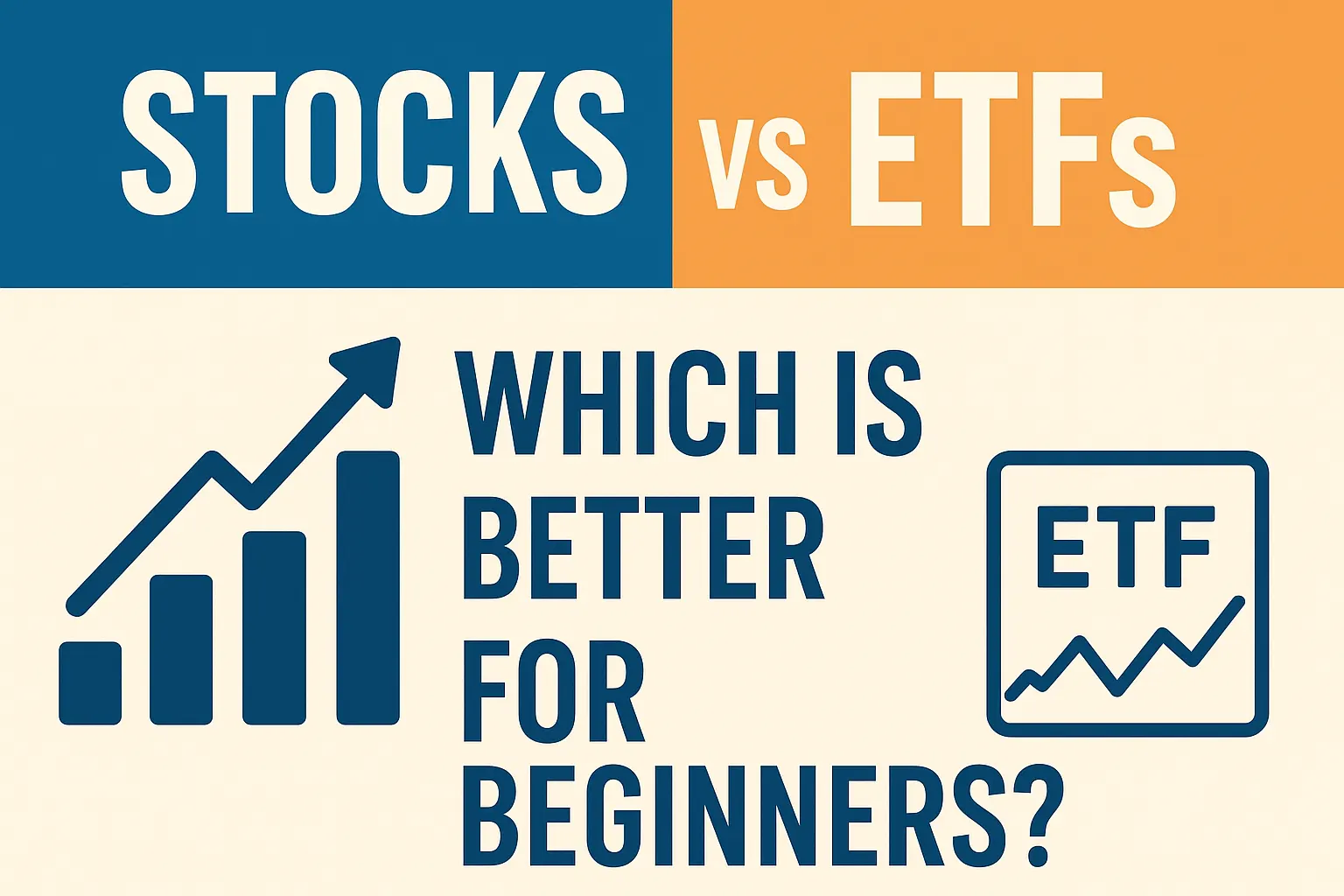Stocks Vs ETFs – Which is Better For Beginners?

Stocks can be an important part of a diversified portfolio. But if you’re new to investing, they can also be overwhelming. ETFs offer a simplified way to invest in a variety of market sectors and goals. They can be cheaper and more tax-efficient than individual stocks.
It can take a lot of time to follow individual companies, analyze their financial statements and track earnings. Many people don’t want to do that work.
What are stocks?
Stocks, also known as equities, are investment securities that represent partial ownership of a company. When a company is successful, its value increases and shareholders can make profits from their shares. Stocks are bought and sold electronically through stock exchanges, which include the New York Stock Exchange (NYSE) and National Association of Securities Dealers (NASDAQ).
Aside from providing a source of potential profit, stocks can also be used to diversify an investor’s portfolio. This can help minimize risk by spreading out investments across a wide variety of market segments, which can decrease the likelihood that one specific investment will lose value.
As with all investments, there is a risk that a company’s stock will not increase in value, which could result in investors owning shares for less than they paid. This can be avoided by investing in a diverse range of companies and using a strategy called dollar-cost averaging, where you invest a set amount over time, regardless of price fluctuations.
While stocks can provide a wealth of benefits for investors, they require an extensive amount of research and analysis to evaluate and choose individual companies. This is a challenge for many novice investors or those with limited time to monitor the market, which is where ETFs come in handy. Unlike stocks, ETFs can be purchased commission-free on most platforms and offer the ability to gain exposure to multiple markets in a single security, simplifying the process of building an investment portfolio.
What are ETFs?
ETFs are tradeable funds that hold multiple underlying assets like stocks, bonds or commodities. ETFs are often organized around a specific strategy, theme or exposure. This can include tracking a sector of the stock market, such as technology or energy; investing in a specific type of bond, such as high-yield or municipal; or even tracking a market index, such as the S&P 500(r) Index or Nasdaq Composite Index. ETFs trade on the exchanges just like stocks, and their prices can fluctuate throughout the day as they are bought and sold.
ETF share prices tend to closely track the value of the underlying assets they represent. This means that in many cases, it’s a more cost-effective way to diversify an investment portfolio than purchasing individual stocks. ETFs can also be easier to trade than mutual funds, as they can be bought and sold at any time during market hours.
However, just because an ETF is available doesn’t mean it will be right for you. As with any investment, there are risks involved. Some ETFs are focused on more aggressive investment strategies and may invest in higher-risk securities that could increase losses. Additionally, some ETFs use financial instruments that can carry counterparty risk or leverage. These can reduce your overall return. Therefore, it’s important to review the underlying holdings of an ETF before you make a decision.
How do I start investing?
Investing can feel daunting for beginners, but learning investment basics is easier than it may seem. The first step is determining what financial goals you want to save for, then exploring different types of investments that align with your time horizon and risk level.
A popular strategy for new investors is to stick with index funds, which track market trends and provide instant diversification at a low cost. Beginners should also consider dollar-cost averaging, which is the practice of adding a consistent amount each month to invest. This helps mitigate market volatility and reduces the risk of making emotional decisions that can lead to poor choices.
If you prefer full control over your investment selections, you can choose individual stocks. However, picking individual stocks requires thorough research on management, industry news, government regulations and more. Plus, you’ll have to pay taxes on capital gains (if you sell a stock in a taxable account).
Before investing in any type of asset, make sure that your emergency fund is fully funded. Then, find an online broker or robo-advisor with the best ratings from NerdWallet. Our ratings take into account fees and minimums, investment choices, mobile app capabilities, customer support and more. And always remember the old adage: if something sounds too good to be true, it likely is. Service members are at a higher risk of affinity fraud, so be on the lookout for fraudulent online investment opportunities that target military communities and families.
Which is better for beginners?
Stocks and ETFs can both be good investments for beginners. The choice ultimately comes down to your individual financial goals and risk tolerance.
Stocks can offer higher returns than ETFs because they provide ownership in companies, allowing investors to share in company profits. But stocks are also more risky than ETFs because the value of a single company’s stock can fluctuate dramatically day to day. And if a company’s stock price plummets, it can wipe out your entire investment.
ETFs can help mitigate this risk because they are a collection of many different securities. They are typically passively managed and track an underlying index. And because they are traded on exchanges throughout the day, ETFs can offer transparency and accessibility compared to individual stocks.
That said, it takes effort to analyze and value individual stocks. And for some investors, the time commitment is too much. In this case, an online broker with low fees and account minimums or a robo-advisor may be better options for new investors. NerdWallet’s ratings of brokers and robo-advisors take into account over 15 factors, including fees and account minimums, investment choices, mobile app capabilities, customer support and more.
